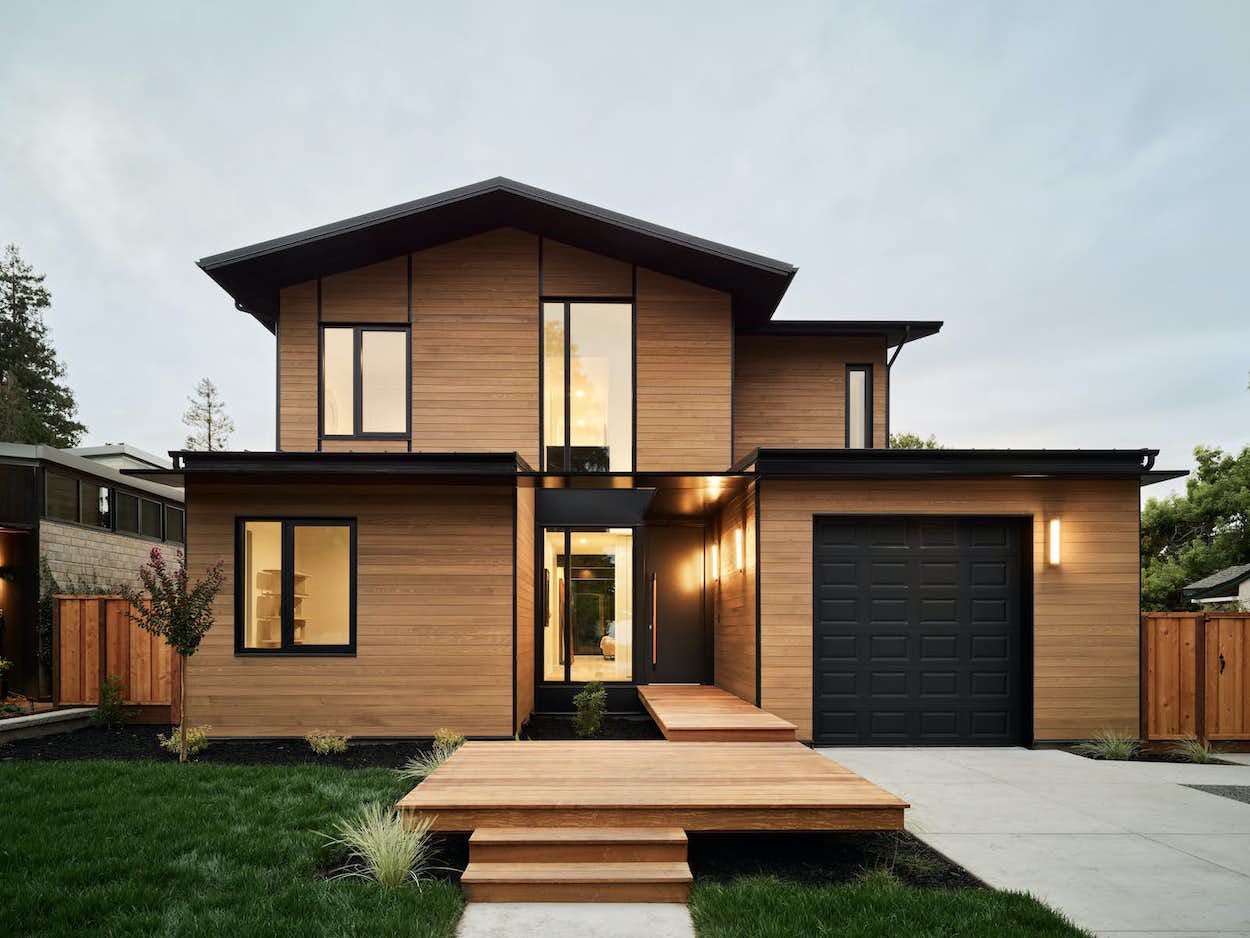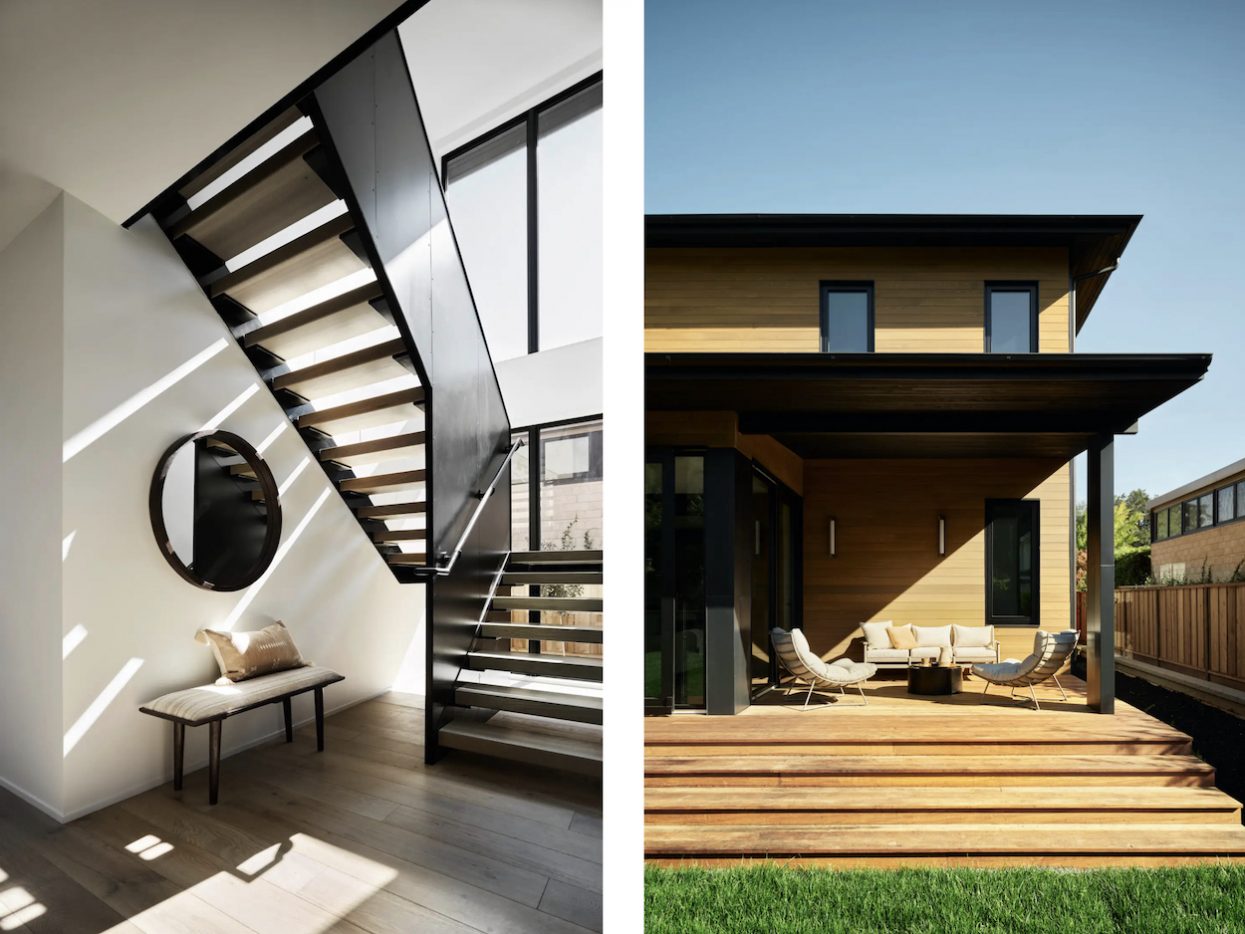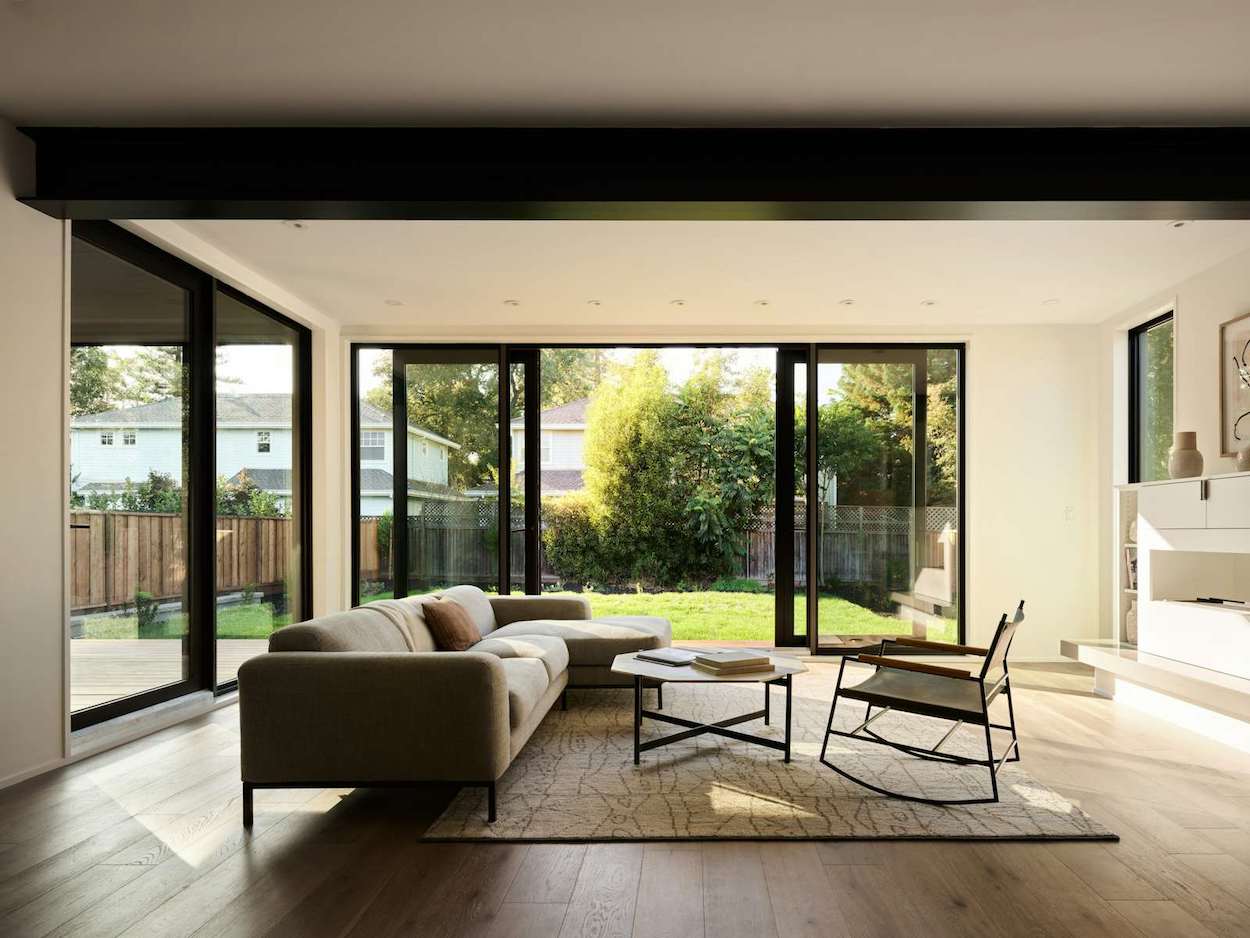Residential housing accounts for 23 percent of global emissions, a problem starry-eyed tech startups have attempted to solve by reinventing home construction with mixed results. A gaggle of companies like Cottage, Homestead, Abodu, Mayasa, and Samara have rushed into the ADU market while former prefab unicorn Katerra went bust in 2021 after burning through a $2.4 billion investment from WeWork backer SoftBank.
Now, Aro Homes is joining the fray with its vision of disrupting the single-family housing sector. Leveraging the potential of prefab construction and thoughtful design, Aro Homes promises to build upscale, net-zero residences within a brisk 90-day timeframe. (Typical construction takes around 18 months.) The feat is achieved by building structural components at a plant in Sacramento and doing construction onsite in parallel. The startup tapped Olson Kundig—the renowned Seattle-based architecture firm best known for site-specific homes with a deep sense of place—to help create the 3,000-square-foot, four-bedroom spec home. It’s the firm’s first shot at prefab design and one that principal Blair Payson hopes will “nudge the market” toward embracing more sustainable homes.
Thanks to a high-performing building envelope coupled with high-efficiency HVAC systems, gray water reclamation, and solar panels, Aro Homes are engineered to use 67 percent less energy than the American Institute of Architects outlined in its 2030 Challenge Baseline for energy performance. “The goal at the core of Aro Homes is to reimagine traditional residential construction and shift existing paradigms around what buyers typically expect in a home,” Payson tells AD Pro. “If this house can nudge the market to expect higher performance and higher-quality design, the impact could be exponential.”
While the structures may set a new sustainability benchmark for prefabs, the Mountain View spec home sold for $4.2 million—more than double the average cost for a home in the city and ten times the amount projected for Icon and Bjarke Ingels Group’s 3D-printed homes in Austin. Aro Homes, which operates in the Bay Area, plans to expand to more cities and bring 1,000 houses to market each year. The company is off to a decent start thanks to launching publicly with $21 million from venture capital firm Innovation Endeavors, but intends to scale to make its homes more affordable. Its second build is scheduled to hit the market this month.


